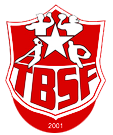|
Poker has been described as simple to learn but hard to master. Here, you'll find a series of practical tips which will help improve your game and make you a more proficient player. They are generalized advice and good tips for beginners and more advanced concepts to explore once you have a handle on the basics of poker. And if you want to diversify away from flat-out Texas Hold'em, play Casino Holdem, a fast-playing variant that sharpens much the same set of skills.
Basic Elements of Poker Strategy
Tip 1. Decide what type of player you are
Poker can be played seriously, or for fun—or both. Either way, if you're going to play very well on a regular basis, you're going to need time and effort. There's nothing wrong with playing strictly for fun, but even then, you don't have to shoot yourself in the foot. If you decide in advance what kind of player you're going to be, it will be easier to make decisions and your sessions will run much more harmoniously.
Tip 2. Learn the language and phrases
Poker comes with a unique vocabulary. To avoid confusion at the table, it’s important to understand key terms and expressions.
We recommend starting with a poker glossary, where you’ll find a wide range of terms and definitions. Poker jargon may seem overwhelming at first, but after a few games you’ll get used to it and quickly grasp the context in which phrases are used.
Tip 3. Focus on making the right decisions
Even the best players lose sessions. Don't expect to win at every hand. Your real goal has to be to play each session as well as you can. With proper decisions, the wins will then occur naturally if you make them repeatedly.
Most players quantify only results, but that's not the case. Use instead the value of your decisions—the more you move toward optimal play, the better you will do in the long term.
Tip 4. Master poker math
Poker is a mathematical game that is being played under incomplete information. It is not difficult, though. On the most basic level, success begins with playing the right starting hands. You will win more if you get yourself into pots more often with better hands than your opponents.
Tip 5. Moving beyond starting hands
Choosing good starting hands is important, but that's only half the story. When you get the basics of hand selection and how position plays into it, you then need to learn later streets. Professionals distinguish themselves from amateurs by playing the turn and river better.
These skills include calculating pot odds, reading betting patterns, bluffing effectively, and using position. Several years of post-flop experience will pay off—small gains here can make a huge difference to your career profit.
Tip 6. Don't tilt
Another important skill is tilt control. Your opponents will try to take advantage of your emotions if you let them. Emotionally playing leads to poor decisions and lost chips. Nobody never tilts—when it does happen, the best cure may be a ten-minute break—or even tomorrow.
Advanced Poker Strategy
Tip 1. Experiment with different playing styles
One of the greatest appeals of poker is the range of style and strategy. The majority of styles are as follows:
- Tight – cautious play, playing in limited pots and accepting limited risk.
- Loose – the opposite of tight, playing plenty of hands and playing more aggressively.
- Aggressive – betting, raising, and putting pressure on others on a regular basis.
- Passive – the opposite of aggressive, calling more than betting, and reacting instead of initiating.
Think about what style you are best. Or maybe you are hybrid? That is okay too. Having the ability to switch gears and develop your style keeps you off balance. For beginners, however, I would suggest a tight-aggressive style: play good hands and bet boldly. This builds discipline and prevents you from getting in bad spots. The more experience you have, however, you can add loose elements—but never aggression.
Tip 2. Position is everything
The dealer, or "button," also bets last in a betting round. This is a fantastic asset, as you have already observed the actions of other players. The dealer position does shift every hand, so it is still even.
To take advantage of this asset, it does make sense to play more of your hands from late position than from early position. Good players often expand their range in late position, as it gives them more flexibility and control.
When you act behind another player, you are "in position" to them. They are thus "out of position." That advantage can prove to be the difference.
Tip 3. Make your bluffs realistic
Your hand selection is key, but so is bluffing. The more players involved in a pot, the larger the chances are that someone holds a solid hand. However, a well-timed bluff can win pots you'd otherwise be missing.
The concept of a bluff is simple: get someone to fold a better hand. To succeed, your play needs to be telling the appropriate story. Think of this: How would I play if I actually did have the strong hand that I'm bluffing to have? Do my bets and positioning make sense?
Make all of the hand pre-planned before bluffing. If your line does not make sense, smart players will see through it.
Tip 4. Odds and outs
Odds express the chance of an event. As a matter of illustration, a toss of a coin is 1-to-1 (50/50). A roll of one die has a 1-in-6 chance of rolling a six.
Now consider poker: you have four clubs and need one more on the river to have a flush. There are 13 clubs in the deck; you have two, two are on the board—seven "outs." With 46 unseen cards left, 9 will complete your flush. Your chances are about 4-to-1 against achieving it.
Tip 5. Pot odds
Pot odds balance the size of the pot against the price of your call.
Assume that the pot is 10 chips, your opponent goes all-in for another 10, and you have a flush draw. If you call, you need to risk 10 to win 20, so pot odds are 2-to-1. Your real probability of making the flush is about 4-to-1—not a good call to make.
Now imagine the pot is 90 chips, and your opponent bets 10. Here, you’re risking 10 to win 100, giving pot odds of 10-to-1. With 4-to-1 odds against making your flush, this becomes a profitable call.
|

